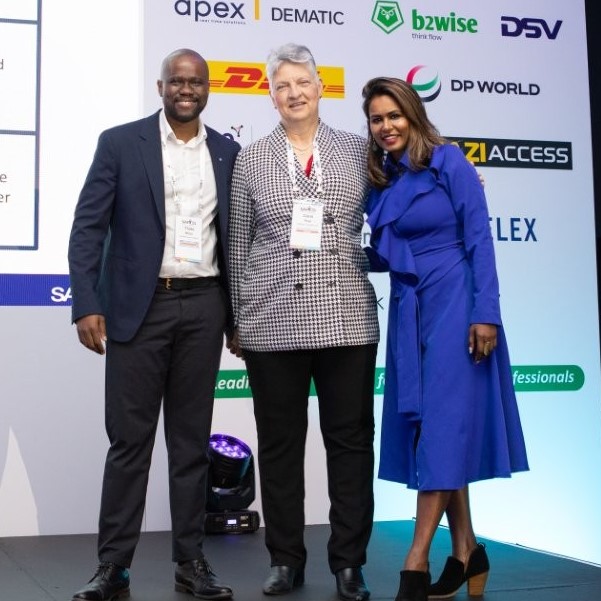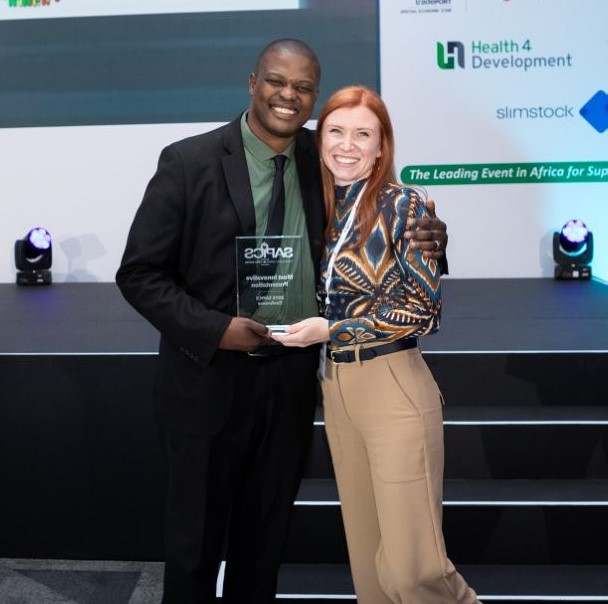For Southern African fleet managers and logistics operators navigating port delays, rising operating costs and infrastructure bottlenecks, this year’s SAPICS Conference delivered both a hard look at current pain points and fresh possibilities for greater industry resilience. Held in Cape Town, the continent’s top supply chain gathering brought together more than 700 professionals from Africa and abroad to tackle some of the industry’s most urgent issues – from AI and circularity to healthcare logistics and skills development.
According to SAPICS: “Supply chain management has moved from the back office to the boardroom.”
Opening the conference, the organisation’s president Thato Moloi said: “Supply chains today are recognised as enablers for job creation and sustainable growth. They are key to global trade and thriving economies and populations. They don’t just get goods and commodities from A to B, they save lives.”
Today, supply chains must be agile, robust and resilient – to absorb the ongoing disruptions in an increasingly VUCA (volatile, uncertain, complex and ambiguous) world, SAPICS stresses.
Since 1966, the mission of SAPICS, a not-for-profit supply chain industry body, has been to elevate, educate and empower supply chain professionals in South Africa and across the continent. This is done through education offerings and events like the annual SAPICS Conference, which this year celebrates its 47th anniversary.
Imperatives for improved efficiencies
World renowned, United States-based supply chain expert and author Carol Ptak delivered this year’s keynote presentation. She urged attendees to adapt to the current volatile, disruption-fraught environment or risk business extinction.
“One ship turns sideways in the Suez Canal and world trade shuts down,” she said, referencing the blockage of the canal in 2021 when the container ship Ever Given ran aground. Ptak is the co-founder of the Demand Driven Institute, a global organisation that advances Demand Driven supply chain strategies and practices.
The Nando’s Group’s global supply chain executive Linda Reddy returned to South Africa from England to deliver the second keynote at this year’s SAPICS Conference. She stressed the imperative for improved port efficiency in South Africa as there’s “a problem with almost every shipment” and companies are struggling with soaring airfreight costs.
Despite ports issues and water and energy instability, she is optimistic about South Africa and particularly South Africans. Nando’s is committed to sourcing all its ingredients and even restaurant décor and supplies from Africa, she told SAPICS attendees.
More than 400 products are exported from southern Africa for Nando’s restaurants and retail outlets in 20 countries. These include bird’s eye chillies, art, furniture, groceries and uniforms. More than 60 people in South Africa work with Nando’s teams in New Zealand and the USA. The skills and dedication of South African workers led Reddy to appoint her own global team from within the country.
“We have buckets of excellence in South Africa,” she said, and urged the SAPICS audience to keep thinking about what can be done better and how South Africa can be more competitive, including making exporting more attractive.
Focus on circularity
US-based author and sustainability and circularity specialist Deborah Dull launched her latest book at this year’s SAPICS Conference. Entitled “Full Circle: Supply Chains Reimagined: A Story of Circular Supply Chain Capabilities”, the book tells the story of Maya Patel:
When a global supply chain crisis paralyses her manufacturing company, Maya proposes a radical solution: to repair and manufacture critical components locally, rather than depending on distant suppliers.
In sharing Maya’s story, Dull discussed the concept of urban mining, where minerals and components are extracted from e-waste. “It’s less expensive to mine e-waste than the planet,” she told SAPICS delegates, and shared the astonishing statistic that there are 10 billion dead cell phones currently sitting in drawers in homes around the world.
Making healthcare truly African
In a healthcare focused session this year, SAPICS attendees met Stella Kivila, a pharmacist turned health technology consultant and strategic advisor who is working to drive healthcare solutions for Africa created by African innovators. In the panel discussion that she chaired, she introduced two of these innovators – Dr Joseph Paul and Dr Arnaud Pourredon.
Paul is a medical doctor and the founder of Dawa Mkononi, a startup in Tanzania. Dawa Mkononi means “medicine in the palm of your hand”, Kivila told the SAPICS audience. Dawa Mkononi’s story started six years ago, when Paul was in a rural village delivering a baby. He needed a drug to accelerate the mom’s labour but it was not available. He asked the family to go and buy it and they only returned six hours later.
Sadly, however, the drug they had bought didn’t work because it was probably counterfeit medicine. This was the catalyst for him to establish his startup which is using technology to make safe, effective medicines more accessible to underserved health facilities.
Pourredon was a surgeon in Cote d’Ivoire. He left his surgical career to start Meditect because he found it heartbreaking to be unable to purchase malaria treatment for a three-year-old. Meditect, Pourredon’s startup, is equipping thousands of health professionals in pharmacies and drugstores in Francophone Africa with modern, intuitive tools. “By increasing the availability of essential medicines, we can increase the life expectancy of people in Africa by 10 years,” he said.
Gamifying skills development
Playing is the best way to learn, according to SAPICS 2025 speaker Laurent Vigouroux. The France-based supply chain expert explained that traditional supply chain training often struggles to engage participants and drive real-world results.
“Gamification and AI are transforming the learning experience,” he said, and unpacked the reasons for the phenomenal success of the LEGO-based supply chain game DDBrix, which is earning praise around the world for its success in simplifying complex concepts, fostering collaboration and boosting retention. A recent addition to the game concept is an AI agent that supports learners.
Recognising standout voices
At the closing dinner that ended the 2025 SAPICS Conference on a festive note, prizes were awarded to the following outstanding speakers and exhibitors:
- Best Exhibition Booth – Open Learning Group
- Best Single Unit Exhibition Stand – b2wise
- Best Multiple Unit – DHL Group
- Most Innovative Presentation – Deborah Dull
- Best Speaker – Carol Ptak
Main sponsors included Transnet (diamond), Intuiflow and SAP (gold), and DHL Group, Dube Tradeport, DP World and others (silver).
Editor’s comment: In a logistics-driven world where every delay has a ripple effect, the SAPICS 2025 Conference underscored just how vital knowledge sharing is in finding solutions to immediate problems. Whether in rural clinics or coastal ports, resilience is built through collaboration, upskilling and bold thinking. Africa’s logistics players would do well to act not just on the pain points – but on the possibilities too – where homegrown supply chain teams (from management to truck drivers) are built to provide the impetus for a better tomorrow. Let’s all roll our sleeves up – a little higher!





